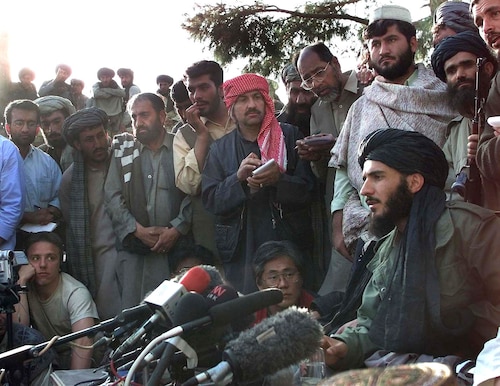by Zafar Yousafzai 25 July 2023
Pakistan has been grappling with increasing insecurity, as evidenced by recent attacks on military bases and law enforcement officers. A newly founded group called Tehreek-e-Jihad Pakistan (TJP) claimed responsibility for a recent attack on a military base in Northern Balochistan, resulting in casualties among soldiers. The mineral-rich province, which shares borders with Afghanistan and Iran, has been facing a longstanding ethnic separatist uprising. Additionally, the presence of the Tehreek-e-Taliban Pakistan (TTP) and the Islamic State (ISIS) armed groups adds to the complex security challenges in the region. This article examines the growing insecurity in Pakistan and explores the role of the Taliban in Afghanistan as a contributing factor to the escalating violence.
In a brazen attack on a military base in Zhob district, Southern Pakistan, suspected fighters armed with guns, hand grenades, and rockets targeted the facility, resulting in the deaths of at least four soldiers. Five other soldiers were critically wounded in the assault. The attackers engaged in a fierce gun battle with security forces for several hours before being contained. The newly founded Tehreek-e-Jihad Pakistan (TJP) claimed responsibility for the attack, announcing its presence and intent to conduct further operations.
Balochistan, a province rich in mineral resources, has been grappling with a decades-old ethnic separatist uprising. The region’s strategic importance due to its vast copper, zinc, and natural gas reserves has made it a target for various armed groups. These groups often view violence as a response to China’s investment plans in the region, aiming to connect Xinjiang province with the Arabian Sea in Balochistan through extensive infrastructure projects. As a result, cities in the province have become frequent targets of violent attacks, especially those involving law enforcement officers and workers engaged in China’s multi-billion-dollar investment plan.
TTP and ISIS Presence in Balochistan
While the government claims to have quelled the armed uprising, violence persists in Balochistan. The Tehreek-e-Taliban Pakistan (TTP) and the Islamic State (ISIS) have emerged as significant threats in the region, stepping up attacks after the revocation of a ceasefire agreement with the government in late 2022. One notable incident was the bombing of a mosque in Peshawar, which claimed over 100 lives in January. Islamabad has accused rebel groups of relocating their operations to Afghanistan, a claim that Kabul denies.
The growing insecurity in Pakistan is also influenced by the situation in neighboring Afghanistan. Following the Taliban’s takeover of Afghanistan in August 2021, the region has become a volatile hub for various extremist groups. The Tehreek-e-Taliban Pakistan (TTP) and other militant outfits have found refuge in Afghanistan, enabling them to conduct cross-border attacks in Pakistan.
Furthermore, the Islamic State (ISIS) branch in Afghanistan and Pakistan, known as ISIS-Khorasan, has been active in the region and is particularly focused on conducting external operations against Western interests. The group has centralized its propaganda apparatus and intensified its media output, targeting the U.S., China, and Russia in its messaging.
Pakistan’s growing insecurity is a multifaceted challenge, with both internal and external factors contributing to the escalating violence. The longstanding ethnic separatist uprising in Balochistan, coupled with the presence of Tehreek-e-Taliban Pakistan (TTP) and ISIS in the region, has significantly impacted the security landscape. The involvement of the Taliban in Afghanistan, particularly with ISIS-Khorasan’s activities, further exacerbates the situation. To effectively address these security threats, Pakistan and Afghanistan must work together to prevent cross-border terrorism and address the root causes of violence in the region. Additionally, international cooperation is essential in combating extremist groups that pose a threat to global security.

